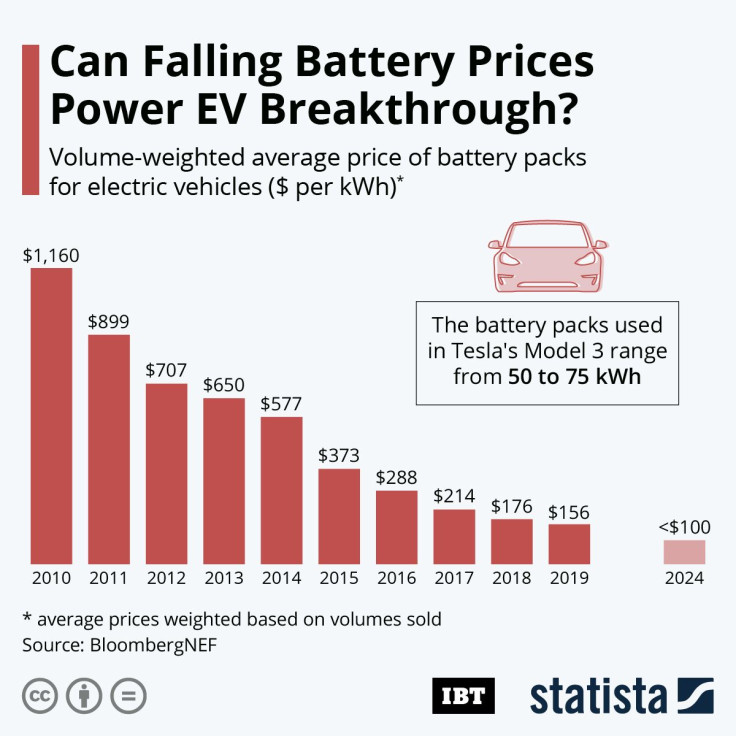Infographic: Can Falling Battery Prices Power EV Breakthrough?

Would you consider buying an electric car if it were just as expensive as an equivalent model powered by a traditional internal combustion engine? I’m betting many people would, and so does Tesla CEO Elon Musk. At the company's annual shareholder meeting, fittingly called "Battery Day", Musk announced his company's plans to bring a $25,000 electric car to market within the next three years that would be "on par" or "slightly better than a comparable gasoline car." To achieve that, Tesla counts on its own ability to dramatically cut the costs of battery packs, which are still the main driver behind the relatively high prices for electric vehicles.
According to research conducted by BloombergNEF, the inflation-adjusted average price of battery packs for cars has dropped from $1,160 per kWh in 2010 to just $156 in the past year. How much of a difference does that make to the price of a car, you ask? A big one. Consider the Tesla Model 3 for example -- The most popular electric car in the U.S. comes with a battery capacity between 50 and 75 kWh. If you decide on the model with 75 kWh, that car’s battery now costs around $11,700 instead of nearly $90,000 it would have cost ten years ago.
While the price is not the only thing keeping people from making the switch to electric cars (range anxiety is another big one), it is still a key concern for many vehicle owners. Should battery prices continue to drop over the next few years, it would go a long way in helping electric vehicles reach broader adoption.





















